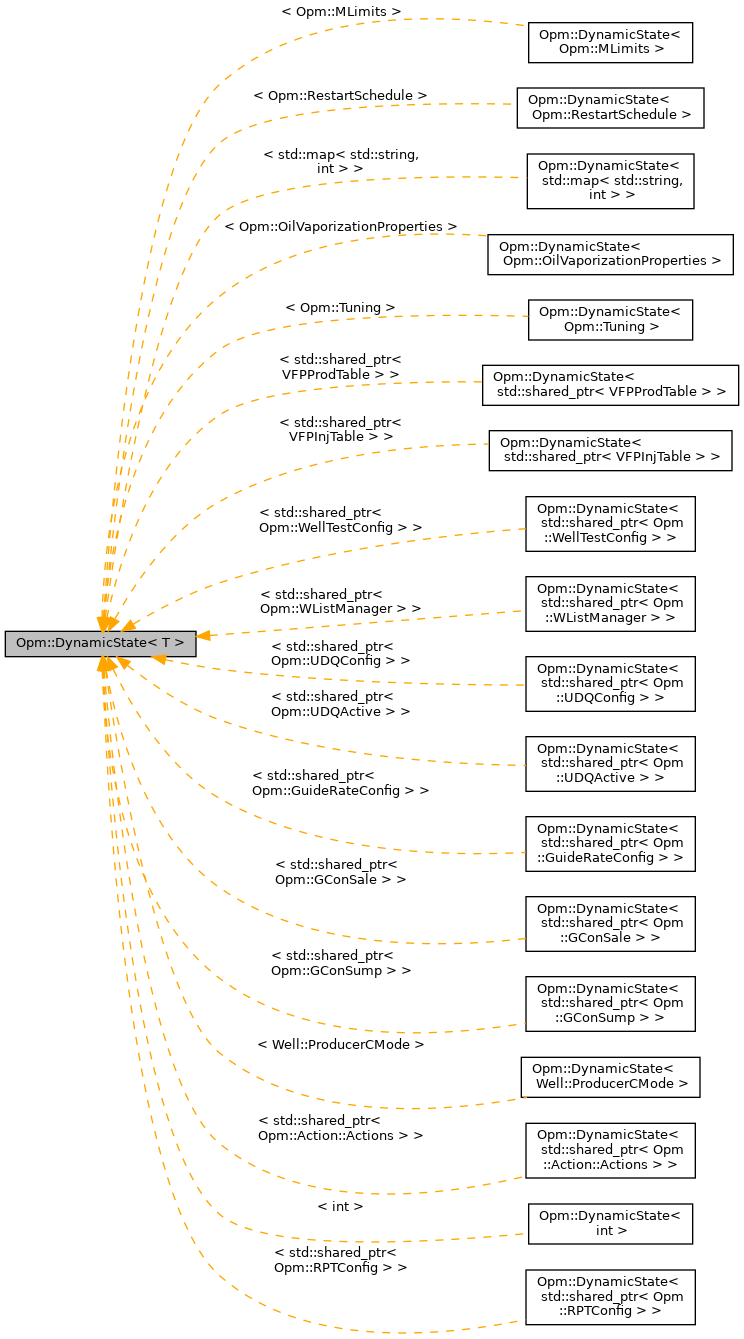#include <DynamicState.hpp>

Public Types | |
| typedef std::vector< T >::iterator | iterator |
Public Member Functions | |
| DynamicState ()=default | |
| DynamicState (const TimeMap &timeMap, T initial) | |
| DynamicState (const std::vector< T > &data, size_t init_range) | |
| void | globalReset (T value) |
| const T & | back () const |
| const T & | at (size_t index) const |
| const T & | operator[] (size_t index) const |
| const T & | get (size_t index) const |
| void | updateInitial (T initial) |
| std::vector< std::pair< std::size_t, T > > | unique () const |
| bool | is_new_data (size_t index) const |
| bool | update (size_t index, T value) |
| void | update_elm (size_t index, const T &value) |
| void | update_equal (size_t index, const T &value) |
| int | find (const T &value) const |
| template<typename P > | |
| int | find_if (P &&pred) const |
| int | find_not (const T &value) const |
| iterator | begin () |
| iterator | end () |
| std::size_t | size () const |
| const std::vector< T > & | data () const |
| size_t | initialRange () const |
| bool | operator== (const DynamicState< T > &data) const |
| template<class Serializer , bool complexType = true> | |
| void | serializeOp (Serializer &serializer) |
Friends | |
| class | Schedule |
Detailed Description
class Opm::DynamicState< T >
The DynamicState<T> class is designed to hold information about properties with the following semantics:
- The property can be updated repeatedly at different timesteps; observe that the class does not support operator[] - only updates with weakly increasing timesteps are supported.
- At any point in the time the previous last set value applies.
The class is very much tailored to support the Schedule file of Eclipse where a control applied at time T will apply indefinitely, or until explicitly set to a different value.
The update() method returns true if the updated value is different from the current value, this implies that the class<T> must support operator!=
Member Typedef Documentation
◆ iterator
| typedef std::vector<T>::iterator Opm::DynamicState< T >::iterator |
Constructor & Destructor Documentation
◆ DynamicState() [1/3]
|
default |
◆ DynamicState() [2/3]
|
inline |
◆ DynamicState() [3/3]
|
inline |
Member Function Documentation
◆ at()
|
inline |
References index.
Referenced by Opm::DynamicState< T >::get(), Opm::DynamicState< T >::is_new_data(), and Opm::DynamicState< T >::operator[]().
◆ back()
|
inline |
◆ begin()
|
inline |
◆ data()
|
inline |
Referenced by Opm::DynamicState< T >::operator==().
◆ end()
|
inline |
◆ find()
|
inline |
Will return the index of the first occurence of @value, or -1 if @value is not found.
References exprtk::details::value().
◆ find_if()
|
inline |
◆ find_not()
|
inline |
Will return the index of the first value which is != @value, or -1 if all values are == @value
References exprtk::details::value().
◆ get()
|
inline |
References Opm::DynamicState< T >::at().
◆ globalReset()
|
inline |
References exprtk::details::value().
◆ initialRange()
|
inline |
◆ is_new_data()
|
inline |
References Opm::DynamicState< T >::at(), and index.
◆ operator==()
|
inline |
References Opm::DynamicState< T >::data().
◆ operator[]()
|
inline |
References Opm::DynamicState< T >::at().
◆ serializeOp()
|
inline |
References Opm::DynamicState< T >::unique().
Referenced by Opm::RestartConfig::serializeOp().
◆ size()
|
inline |
◆ unique()
|
inline |
Referenced by Opm::DynamicState< T >::serializeOp().
◆ update()
|
inline |
If the current value has been changed the method will return true, otherwise it will return false.
References index, and exprtk::details::value().
◆ update_elm()
|
inline |
References index, and exprtk::details::value().
◆ update_equal()
|
inline |
References index, and exprtk::details::value().
◆ updateInitial()
|
inline |
Friends And Related Function Documentation
◆ Schedule
|
friend |
The documentation for this class was generated from the following files: